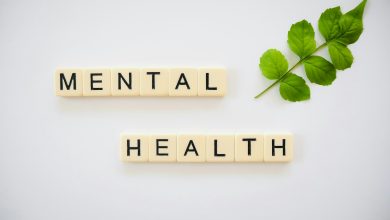How Speed Drug Almost Ruined My Life – Pryce

The allure of speed, particularly Adderall, had a profound and devastating impact on my life, gradually eroding my well-being and stability. My relationship with this drug took me on a treacherous journey, transforming three ordinary days into a relentless and agonizing experience.
My mornings began in a daze, as if I were struggling through a thick, slow-moving fog. I’d reluctantly drag myself out of bed and, in an attempt to jumpstart my day, ingest a substantial dose of Adderall – typically around 60-90mg – alongside several cups of coffee. As a physics major, I often had complex problem sets to tackle, and once the Adderall kicked in, I’d lock myself in the science center and immerse myself in work. Hours would pass by, sometimes up to 12 straight, with me hunched over my desk, rarely shifting from my seat except for frequent bathroom breaks. I’d occasionally attend classes or fulfill work obligations, all the while fueling my system with a constant stream of caffeine, Red Bull, and copious amounts of water. During these periods, I would neglect to eat, and my skin constantly felt feverish to the touch. My heart raced, my hands trembled, and my body quivered with jittery energy – the quintessential image of a person under the influence of speed. And I reveled in it.
By the end of the second day, I’d be trapped in a paradoxical state of wakefulness and exhaustion, a misery of its own kind. Both my body and mind would slow down to a crawl, but the relentless grip of Adderall wouldn’t allow them to rest. At this point, the once-enjoyable euphoria had vanished completely, no matter how much I ingested.
So, I’d wait. I’d wait for my body to expel this malevolent drug, for my racing thoughts to subside, and for my heart to finally find peace. I’d wait for diphenhydramine to take over and grant me some semblance of rest. If I happened to drift off to sleep while still under the influence of amphetamines, it was a restless, troubled slumber, punctuated by frequent awakenings for sips of water. But when the inevitable “big sleep” finally arrived, it would last for a full 24 hours. During this time, I’d miss out on everything – classes, social gatherings, and meetings I had scheduled. If I had been diligent that week, I’d have preemptively canceled or flaked on all my commitments before plunging into this deep sleep. Then, after this hibernation, the cycle would begin anew.
My life while using was marked by unreliability, erratic behavior, and unpredictable volatility. Adderall was my constant companion, my lifeline, and I often liken my separation from it to the most emotionally devastating breakup of my life. It might sound irrational, but I cherished everything I believed it provided because it allowed me to shed the burdens of mere existence: hunger, fatigue, and the banalities of life. But inevitably, I crashed and burned, spiraling into a crisis that led to my involuntary confinement in a psychiatric hospital. Now, 71 days clean, I can say that I’m absolutely loving the new clarity and stability in my life. The chaos has dissipated, and everything has been restored to a state of normalcy once more.
Each day, millions of individuals face the same harrowing challenge that my story encapsulates, battling addiction to a variety of substances that threaten to consume their lives. While the specific drugs and circumstances may vary, the overarching narrative remains strikingly similar, as countless lives are caught in the perilous web of addiction.
For many, addiction begins innocently enough, perhaps with a legitimate prescription for a medication like Adderall to manage attention deficit disorder or an injury that necessitates painkillers. However, over time, the initial therapeutic benefit gives way to an insidious dependency, where the substance becomes not only a crutch but also a perilous escape from the pressures and mundanities of life.
The daily routine of an addict is often characterized by the relentless pursuit of their drug of choice, much like the protagonist in the previous story. Mornings are greeted with a sense of desperation, as they rouse themselves from a foggy slumber, knowing that the only way to face the day is to feed their addiction. The substance becomes their lifeline, the means to function and escape the troubles that await them.
As hours turn into days, the addict’s life becomes a blur of consumption, denial, and chaos. The drug may provide a fleeting sense of euphoria or relief, but it is always followed by a steep and unforgiving crash. The cycle repeats itself endlessly, as they chase that elusive high, often compromising their health, relationships, and responsibilities in the process.
For those in the throes of addiction, reliability becomes a distant memory. Their behavior becomes erratic and unpredictable, straining relationships with family, friends, and colleagues. Trust is eroded, and the addict often isolates themselves from those who care about them most, as the drug takes precedence over everything else.
The physical and psychological toll is relentless. The addict’s body deteriorates, with health problems mounting as they neglect self-care in favor of their drug of choice. Anxiety, depression, and other mental health issues are exacerbated, creating a vicious cycle of self-medication and despair.
Ultimately, addiction can lead to a catastrophic breaking point, much like the protagonist’s descent into a psychiatric hospital. It’s a painful, tumultuous journey that threatens not only the addict’s life but also the lives of those who care about them.
However, there is hope. Many individuals find the strength to break free from addiction through rehabilitation, therapy, and support from loved ones. Every story of recovery is a testament to the resilience of the human spirit and the power of transformation. While addiction may be a daily battle for millions, it is also a battle that can be won with determination, guidance, and a supportive community.





